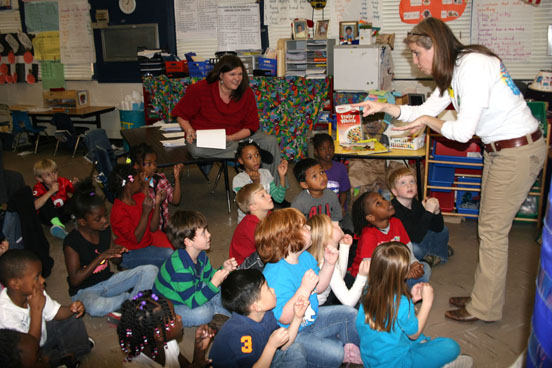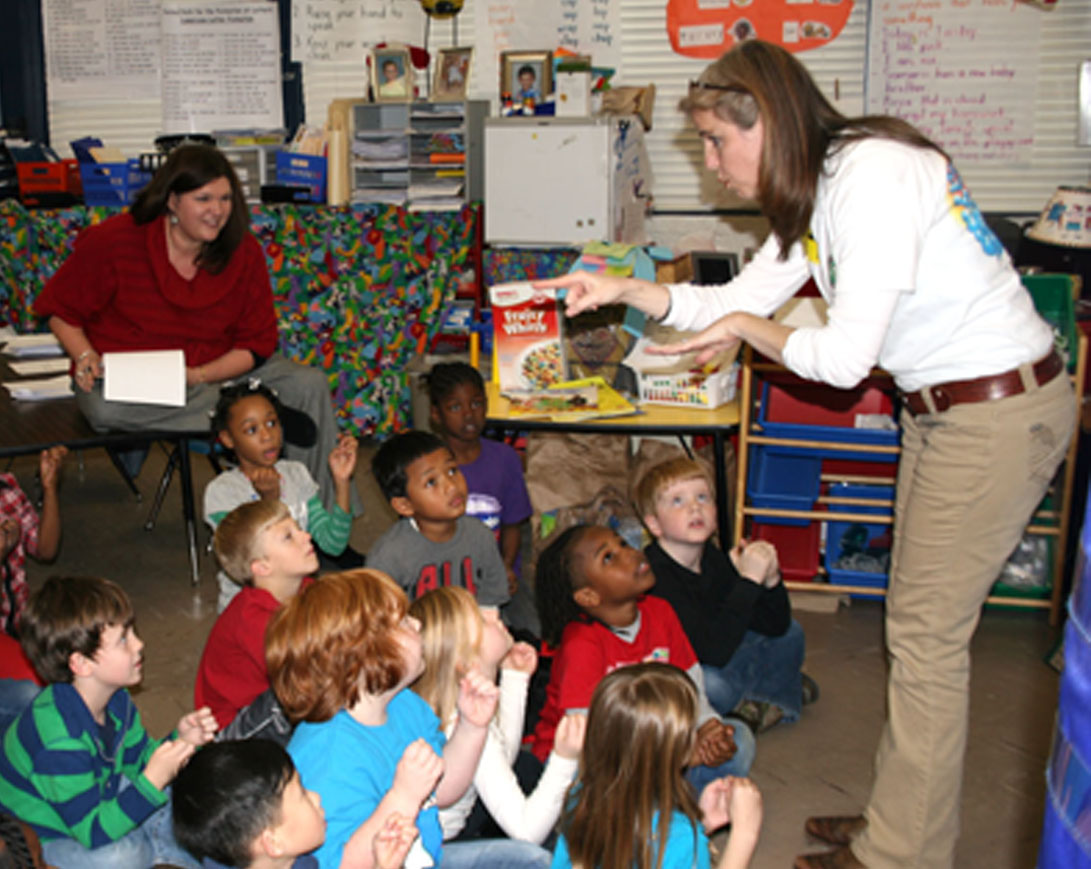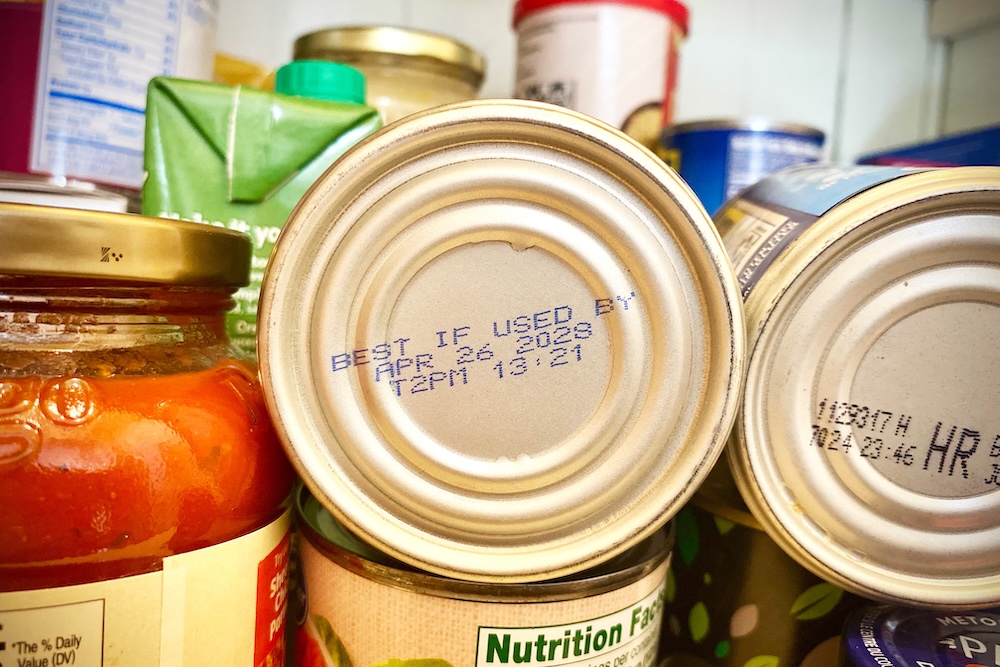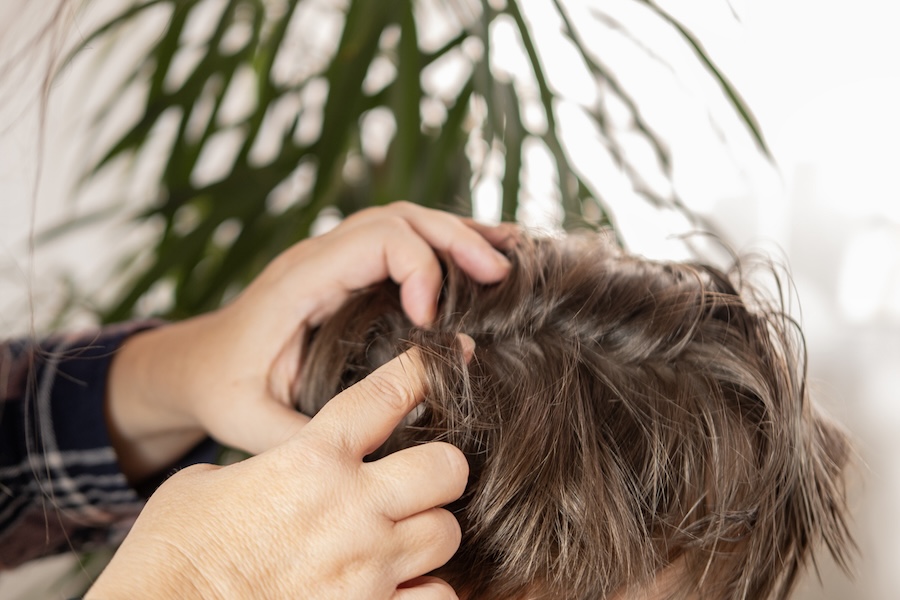Children are like sponges—they absorb everything. That’s why University of Georgia Cooperative Extension agents are teaching children, at an early age, the importance of decreasing sugar consumption and properly washing their hands.
Roxie Price, Tift County Family and Consumer Sciences agent, teaches that county’s first- and second-graders how to decrease the amount of sugar in their diets and how to properly wash their hands.
When Price teaches second-graders, she explains how much sugar they’re drinking by showing them the amount of sugar in the beverages they’re consuming, which results in an added emphasis on drinking more water.
“Their eyes just light up when they realize how much sugar is in that drink,” Price said. “Anything from sodas, to sports drinks, to juices—I show them all kinds of different drinks and how much sugar they’re actually getting.”
The students even get an incentive for listening to ways to decrease their sugar intake.
“This year, Tift Regional (Medical Center) has given us the funds to give every second-grader a bottle that says, ‘Drink less sugar.’ To impact self-esteem, it says, ‘You’re sweet enough already,’” Price said.
Aside from sugar consumption, Price also teaches students how to effectively clean their hands and prevent spreading germs to their family members and classmates.
“When children get sick, it travels fast within the school systems,” Price said. “They’re touching one thing, they’re handling the rail when they’re walking down the hall, they’re dragging their hand down the wall. So, we really talk to them about proper hand-washing procedures.”
During the lesson, Price uses a black light to show the students all the germs that are on their hands. She then directs them to wash their hands and uses the black light again to show the remaining germs and the areas they are missing.
Price also instructs the students about keeping their hands out of the openings on their faces, such as the eyes, nose, mouth and ears.
“I also talk to them about how it’s very important not to handle babies or love on your grandparents, because they can get sick quicker than somebody that’s middle aged or whose immune system has not been depleted for some reason,” Price said.
When a child is sick and has to stay home from school, it affects the entire family.
“If they’re not healthy, they’re not in school,” Price said. “If they’re not in school, they’re not learning. If they’re not in school, their parents are probably missing work, which means missing income because they have to stay home.”
The lessons that Price teaches are beneficial for both the student and their family.
“When you’re teaching those first- and second-graders, you’re really reaching their whole household about being healthy,” Price said. “At that age, they’re going to go home and tell their parents what they’ve learned. They’re going to tell their siblings what they’ve learned. Not only are you keeping (them) healthy, but you’re sending it back into that home and keeping that house healthy.”
(Tatyana Phelps is an intern on the UGA Tifton Campus.)








